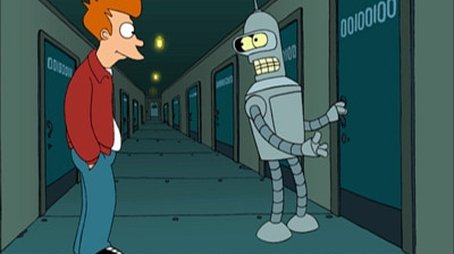
Sorry, we have not watched this yet.

When it is discovered that Philip has been living in the Planet Express office, he is forced to move out. Trying to sleep standing up in Bender's closet-sized apartment doesn't work, so they go looking for a place both can be comfortable. Unfortunately, Bender is incompatible with the ideal apartment they do find until he has a radical... modification which makes him less than happy.
Sorry, we have not watched this yet.